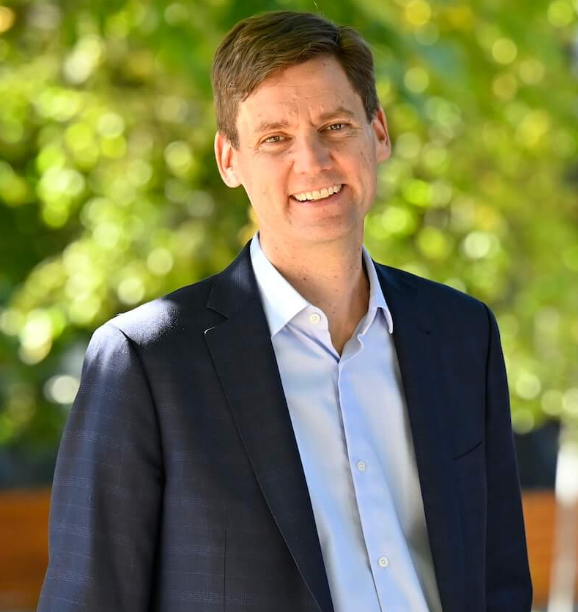The program will triple from 32 to 96 seats by March 2024
MORE family doctors will be available to take patients and treat people as the Province expands a program that trains internationally educated doctors, so they can get licensed to practise in British Columbia, the Province announced on Sunday.
“The pandemic has exposed underlying challenges and added new strains to our public health-care system, and too many British Columbians are struggling to find a family doctor,” said Premier David Eby.
“Meanwhile, family doctors trained outside of Canada aren’t able to practise family medicine, because they lack a pathway to be licensed here. We need to fix this. That’s why we’re taking action to help get more internationally trained doctors off the sidelines and into communities where they are so desperately needed.”
The Province is expanding the Practice Ready Assessment program, which is a pathway for internationally educated family doctors to be licensed to work in B.C. The program will triple from 32 seats to 96 seats by March 2024.
“By tripling the number of seats over the next 16 months under the Practice Ready Assessment program, providing a new pathway for international medical graduates to work as associate physicians, and removing barriers for doctors from the United States to work in B.C., we are delivering in our commitment to patients and building strong team-based care for all British Columbians,” said Adrian Dix, Minister of Health.
International medical graduates (IMGs) who are not eligible for full or provisional licensure in B.C. may be eligible for a new associate physician class of restricted registration with the College of Physicians and Surgeons of BC (CPSBC). This will allow them to care for patients under the direction and supervision of an attending physician within a health authority acute-care setting.
This is part of government’s work to recruit more health professionals and provide immediate solutions for people who need to access health services. The Ministry of Health is also working with the CPSBC to expand the new class, so associate physicians can work in community-based primary care settings over the coming months.
The Province is working with the Royal College of Physicians and Surgeons of Canada and the College of Family Physicians of Canada to allow IMGs to start the accreditation process before they arrive in B.C. Doctors interested in moving to B.C. will have increased certainty of being able to practise when they arrive, so they can support doctors and begin treating patients.
The College of Physicians and Surgeons of BC will prepare bylaw changes to allow doctors trained in the U.S. for three years to practise medicine in community settings, such as urgent and primary care centres, community clinics and family practices. These doctors will be able to care for adult and pediatric patients, as well as provide emergency and urgent care. The bylaw changes will be implemented in the coming weeks, with the intent of allowing these doctors to practise medicine in B.C. communities by January 2023.
These actions are part of B.C.’s Health Human Resources Strategy, which was announced on September 29. The strategy supports patients by ensuring they get the health services they need and are cared for by a healthy workforce. It focuses on 70 key actions to recruit, train and retain health-care workers, while redesigning the health-care system to foster workplace satisfaction and innovation.
Dr. Heidi M. Oetter, Registrar and CEO, College of Physicians and Surgeons of BC, said: “British Columbia has a long history of relying on IMGs to deliver competent medical care to patients. The college applauds this important announcement to expand pathways to licensure for IMGs and improve patient access to high-quality health care. With the introduction of the new associate physician class of registration, the college is now able to offer an alternate route for IMGs who may not otherwise be eligible for licensure. Currently, associate physicians can work in college-accredited programs in health authorities. We are also pleased to work with the Ministry of Health to develop a structure that enables associate physicians to work in community primary care settings and to seek additional innovative, sustainable solutions to address B.C.’s health human resourcing challenges.”
Dr. Ramneek Dosanjh, President, Doctors of BC, added: “We are pleased that the provincial government is making it easier for more U.S. and internationally trained family doctors to come to British Columbia and practise. It Is something Doctors of BC has long advocated for. Given the challenges in our primary care system and the number of patients without a family doctor, these changes will greatly benefit British Columbians.”
Dr. Ehab Fadhel, family doctor in Victoria who completed the Practice Ready Assessment program in 2022, said: “The Practice Ready Assessment program fully prepared me to be a family doctor at the Arbutus Family Medicine clinic in Victoria. After training in Qatar and in the United States, I am proud to care for my patients in my new community and I am happy that more physicians will be able to live and build a rewarding career in B.C. like I am.”
Learn More:
To learn about the Practice Ready Assessment, visit: https://www.prabc.ca/









